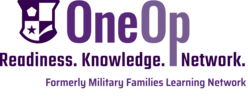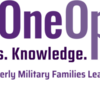Finding the balance between paying off debt and saving more money can be overwhelming. While it may be tempting to focus on one or the other, it may be possible to both save money and pay off debt at the same time with the right plan.
Paying Off Debt
The first step to paying off debt is knowing what is owed. Clients should make a list of their debts including the lender’s name, the total amount owed, the monthly payment, and the interest rate. Before attempting to save any income, they should be certain the monthly payments are made on each debt. Carrying too much debt or defaulting on debt can negatively impact credit scores.
Saving Money
Setting goals and creating a plan for saving and investing should be done as soon as possible. Both short-term and long-term goals should be evaluated, and investment opportunities should be considered to further these goals. Keeping in mind that debts may also need to be paid, the amount of money available for saving may fluctuate month to month.
Balancing Debt and Savings
With the understanding that both paying off debt and saving early are extremely important, balancing both activities at the same time may be necessary. There are a few considerations to make when allocating money for each effort, however. For debts with high-interest rates, it is recommended that clients prioritize those debts over savings goals. They will be paying more money in interest on the debt than they may be earning by saving it in an account.
Furthermore, if the client has an extremely high balance on a debt, their debt-to-income ratio will be high. This can harm their credit score, even if they are making payments on time, and can have a long-term impact on their financial security.
The balance between saving money and paying off debt is going to be different from one client to the next. Evaluating the amount of debt and the type of debt alongside their earning potential and savings goals is essential, and there will be no single solution for all clients. Each solution is uniquely based on that individual’s financial situation.
For additional content related to working with clients on personal financial issues, visit the OneOp Personal Finance Team. Free CEUs are available for AFCs and CPFCs through our webinars.
Written By:
Laura Royer
Edited By:
Selena Garrison
Program Coordinator



Comments (0)